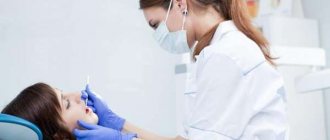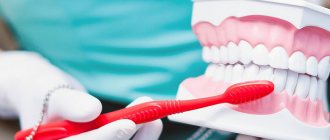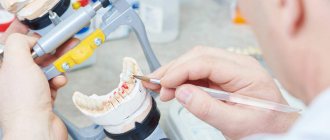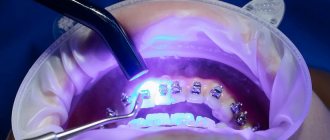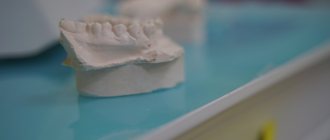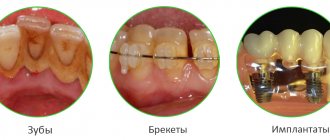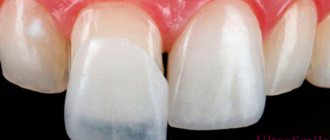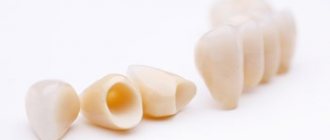Final exams will begin very soon, and newly minted applicants will start pouring in to Russian universities.
Many of today’s graduates already have a very specific idea of their future professional activities, which means they have decided on their place of study.
Others cannot yet “find themselves” among the variety of professional prospects. Our article will be equally interesting for both.
After all, among the first and second groups of graduates there will be representatives who want to connect their fate with medical activities, in particular with dentistry.
During this conversation, we will not only understand the features of the dentist profession, we will also find out how to enter a university and how many years it takes to study to become a dentist, and we will consider in detail the specializations that can be offered to you.
Who is a dentist?
A dentist is first and foremost a doctor, a specialist in the field of problems of the oral cavity and maxillofacial area.
He checks the condition of teeth and treats patients, advises on issues of implantation, growth, changing teeth, and gives recommendations on further oral care.
Future profession
Training in this specialty will ensure the preparation of qualified personnel who will be able to fully realize themselves in their future profession. The graduate will be able to:
- receive patients, conduct a survey and examine the condition of their oral cavity, detect existing defects and make diagnoses;
- select the most appropriate treatment technique, predict results and explain the treatment process to the patient;
- take into account all the features of the current condition of the patient’s teeth and prevent the occurrence of more complex situations;
- conduct routine examinations of patients to monitor their condition;
- competently prepare medical documentation and manage patients.
The doctor's qualification level increases with his experience. Also, each doctor undergoes advanced training courses in order to keep abreast of all the new developments in the field of dental occlusion treatment.
Characteristics of the profession - what it does, functions and responsibilities
Let's see what specializations dentists have:
- The therapist is the doctor to whom you turn first. The general practitioner analyzes the general condition of the teeth. Finds problem areas, treats caries, removes nerves, puts fillings and restorations, and prepares teeth for prosthetics.
- The surgeon performs operations in the oral cavity: removes teeth, restores the jaw after injuries, prepares the oral cavity for implantation, prosthetics, orthodontic and orthopedic treatment. Deals with problems related to inflammatory processes, cysts and tumors.
- The orthodontist corrects malocclusion - a situation where the jaws do not close evenly, but with a deviation to the right or left, corrects the curvature of the teeth - increased crowding, in which the teeth have “not enough space” and they run into each other or vice versa. The result of his work carries an important aesthetic point for the patient.
- Orthopedist – comes to the rescue when teeth are missing. Restores them with the help of dentures, removable or permanent, and fully reproduces the important chewing function. If it was possible to save a small part of the tooth, then it uses restoration technology using a crown. This doctor works in tandem with a dental technician - a specialist in the manufacture of dentures and prosthetic elements for a specific case.
- Hygienist is a relatively new field. Monitors the cleanliness of the oral cavity, carries out preventive and hygienic procedures to maintain oral health. Removes plaque, tartar, polishes enamel. Provides consultations regarding the prevention of dental diseases.
- Implantologist – specializes in restoring lost teeth using implants. Innovative technology allows you to install tooth analogues that are no different from real ones. Conducts a full examination, preparation in several stages and the implantation itself. Observes the patient throughout the entire period of rehabilitation after the intervention.
- A pediatric dentist is a doctor who deals with children's dental problems. Removes and treats baby teeth so that the molars are formed healthy, puts fillings, fights diseases associated with the oral cavity, which children are prone to at an early age. A pediatric dentist should not be a doctor, but a kind wizard who will convince the child to treat his teeth and be able to perform all the manipulations without tears.
Who is it?
This is a doctor who deals with the correction of congenital or acquired pathologies of the jaws. He places braces, makes impressions for dentures, and then installs them. His competence includes the treatment of the following anomalies:
- curvature of the entire geometry of the dentition or individual teeth;
- unaesthetic bite;
- disproportionate development of the upper and lower jaws;
- unerupted teeth;
- asymmetrical face shape;
- tooth gap;
- speech, chewing or breathing disorders resulting from jaw pathology;
- restoration of lost teeth;
- displacement of the dentition.
The specialist’s responsibilities also include preventing the occurrence of such anomalies and studying the reasons that cause them. The orthodontist works to improve the dentition in every possible way.
The profession requires combining the skills of a dental technician with the knowledge of a dentist. But he does not treat carious cavities or fill them. To correct teeth, an orthodontist mainly uses hardware and surgical methods.
Important! Dental anomalies can be corrected at any age. But only those who see a doctor on time with their problem can count on the most positive results. This applies to both children and adults.
In the video about who an orthodontist is, what he does and why it is needed:
What a dentist should know and be able to do - personal qualities and skills
First of all, have a great desire to help people. There is no person who has never had a dental problem.
The doctor must find an approach to everyone, convey the need for the procedures performed and set them up for a positive outcome. Calm and support.
The profession is associated with the ability to work with a large amount of information at the initial stage; in the future, it is important to be able to successfully combine knowledge with practice. This is the basis for making a diagnosis - a decisive role in dental treatment.
A lot of daily work awaits the future specialist. The profession implies constant improvement and training, because modern dentistry does not stand still, new types of treatment appear every year.
This is important: a modern doctor must not only know about innovations, but also be able to apply them in practice.
Acquired skills
During his studies, the future orthodontist will learn:
- collect anamnesis, conduct clinical and laboratory tests to assess patient data;
- determine the degree of mobility of teeth and oral mucosa;
- perform probing of periodontal canals, administer medications, irrigate gums and teeth with medications;
- remove hard and soft deposits on teeth;
- provide assistance to patients with pulpitis, caries, periodontitis;
- remove baby and permanent teeth;
grind tooth tissue, take impressions from the jaw and face, cast diagnostic and working models of jaws;- design devices, engrave and mark jaw models;
- apply and adjust intraoral removable and fixed appliances;
- prepare teeth and jaws for upcoming prosthetics;
- perform splinting when the patient is injured.
This is not a complete list of skills and abilities that a student will master while studying at a university. All knowledge will be applied in practice before graduation, which provides a large amount of practical training.
What subjects need to be taken
To enter the Department of Dentistry, students must pass mandatory exams in the subjects of biology and chemistry. An additional subject from the university and one of the applicant’s choice are also taken.
It is advisable to have at least a basic knowledge of Latin, which is the basis in medical terms. After 9th grade, you can go to college, where the requirements for OGE scores are much lower.
Like any university, medical schools have paid training (for those who do not pass the test) and budget training (available to certain categories of people and high-impact students whose Unified State Exam scores are close to 300).
The answer to the question of how much tuition costs should be found on the website of a specific university.
Russian National Research Medical University named after N. I. Pirogov
In 2013, 25 applicants were admitted to the Faculty of Dentistry with a passing score of 261 in three exams. Practical training for future dentists begins in the junior years. In the second year, students work in specially equipped phantom classrooms, where the conditions of a real dental appointment are simulated. Here, each student has a separate workplace - a phantom table, patient head simulators, a set of equipment and materials. In senior years, students receive patients in medical institutions under the guidance of teachers from specialized departments. Senior students actively attend master classes organized during international dental exhibitions, studying the experience of the international dental community.
Which universities offer training in this specialty?
According to statistics, medical education in Russia is of the highest quality, and this is the key to a healthy nation. There are no special dental universities in our country.
Almost every medical school is recruiting for the Faculty of Dentistry. Depending on the chosen educational institution, different forms of education will be offered: full-time, part-time, evening.
You can enroll after 11th grade. This specialty is also offered by medical technical schools and colleges, which can be entered after completing 9 grades.
As a rule, all educational institutions have budget places. To take them, you need to have a high score on the Unified State Examination, otherwise the cost of training will fluctuate up to 400 thousand for leading universities in Moscow and St. Petersburg and on average up to 250 thousand in the regions. Education in technical schools and colleges costs an order of magnitude lower.
Medical School No. 1
The oldest medical school in Moscow has existed for more than 200 years. Here, 70 students are annually recruited for the specialty “Orthopedic Dentistry”, the competition is held based on the average score of the certificate. The school operates a distribution system at the request of the Moscow Department of Health. Dental technicians are employed in children's and adult urban dental clinics. Those who want to work in commercial medical centers find work on their own. 15% of 2013 graduates continue their studies at medical universities.
Where can a dentist work?
Commercial dentistry is now leading the way in providing jobs. The state is pursuing a policy that supports medical workers, providing decent wages, high pensions and the opportunity to purchase subsidized housing.
This profession will always be popular and relevant, because every person has been a patient of a dentist for almost his entire life.
What exams do you need to take to become a doctor?
In most medical universities, upon admission you must pass the Unified State Exam (USE) in the following subjects:
- Russian language
- Chemistry
- Biology or Physics
Also, to obtain a school certificate, you must pass the Unified State Examination in mathematics.
Attention! The competition for budget places in the specialty “Dentistry” is very high, so if you do not have the opportunity to study in a paid department, the points scored based on the Unified State Examination results should be maximum.
How much do dentists earn?
The average salary in public dentistry is 25 - 50 thousand rubles per month , bonuses and subsidies are paid, depending on the length of service and qualifications of the doctor.
Commercial clients provide the opportunity to earn from 40 to 150 thousand rubles. These figures vary depending on the region.
MIIT Medical College
The college is a structural subdivision of the Moscow State Transport University, and trains paramedical personnel for medical institutions of the Russian Railways system. It is also a clinical base for students’ practical training. Graduates of the specialty “Orthopedic Dentistry” are guaranteed 100% employment in hospitals and clinics of the Moscow railway transport. You can only get a dental technician profession here for a fee; the cost of training is 90 thousand rubles per year.
Career growth of a dentist
Dentists are divided into categories: first, second and highest. To confirm the first category, you need experience (three years), protection of the following categories after seven and ten years, respectively.
Confirmation is carried out before the commission with a report on the work done. To advance up the career ladder, you need to be a talented and hardworking doctor; your merits will not go unnoticed.
Benefits of postgraduate study
After residency is completed, you can enroll in graduate school and continue to improve your level of knowledge. The student will be able to gain important managerial and pedagogical competencies, which will allow him to significantly expand the expected list of positions held.
Also, upon completion of graduate school, a dissertation is written and defended, which allows one to obtain the degree of Candidate of Dental Sciences. This will have a positive impact on the salary level of the future specialist, regardless of whether he works in a public or private medical institution.
Is it worth studying to become a dentist? Pros and cons of the profession
The main thing is to have a great desire to treat patients’ teeth. Working with people is psychologically difficult, and the profession also involves enormous physical labor: working with your hands, in one position, under tension.
But it's worth it - nothing compares to the happy and grateful faces of patients.
Going to study based on the mere demand for a profession and fairly high wages is not entirely correct. It’s like an artist’s calling to become a musician, because they get paid more, even though he is only talented in drawing. It is better to find a profession you like and achieve success there.
Being a doctor is not only a calling; doctors take the Hippocratic oath, which says “do no harm.” This should be the basis when choosing the profession of a doctor, and a dentist in the first place!
Disciplines studied
In the process of receiving education, the student will study the following subjects:
- social hygiene and public health;
- organization of medical orthodontic care for the population;
- normal and pathological anatomy of the head;
- diagnostic methods in orthodontics;
- technologies for treating patients with diseases and deformities of the dentofacial area;
- orthodontic instruments and equipment;
- development and prevention of dental anomalies and deformations;
- anomalies and deformations of teeth and jaws;
- occlusion abnormalities;
- defects of the jaws, dentition and marginal periodontal disease;
- injuries of the maxillofacial area, pathologies in the development of the face and jaw.
Some specialties for elective study of ordinates can be chosen at will.
Salaries
Of course, you can’t count on a good salary right away. Many dentists are already working and earning money while studying to become an orthodontist. Then you recruit your patients for another six months, and then everything depends on you. An orthodontist earns above average; with a full-time job, you can easily count on 100,000 or 150,000 rubles; we most often work for a percentage, so how many patients are left is how much we will earn, and this depends on the economic situation in the country and on time of year. In July, for example, you can safely go on vacation.
In general, 10 years after graduating from university, I realized that everything depends only on you. The saying “he who does nothing makes no mistakes” is definitely about doctors, and if you are not afraid of difficulties, are ready to learn all your life and love your work, everything will work out.
What does an orthodontist do?
Orthodontists deal with:
- correction of abnormal jaw development;
- alignment of the dentition (row);
- treatment of soft tissues;
- installation of braces;
- restoration of lost tooth fragments.
Most often, doctors have to work with patients who have malocclusion. Jaw pathologies can also occur as a result of injuries. Another important task of the orthodontist is to prepare the patient for the process of prosthetics or installation of implants.
Advantages and disadvantages
All applicants want to know about the possible pros and cons that they may encounter while working. The advantages of this specialty include:
- good salary with a chance for additional opportunities. payments and bonuses;
- the opportunity to work with unique clinical cases and understand the structure of patients’ jaws;
- career prospects and a chance to take the post of chief physician;
- fixed shift work schedule, taking into account the time necessary for employees to recuperate;
- long vacation and additional days off for overtime (45 days or more);
- new interesting acquaintances in the medical field;
- a chance to work not only as an orthodontist, but also as a general practitioner;
- a chance to help people every day.
Professionals deal with various maxillodental defects and psychological problems of patients every day. Their main task is to provide the necessary psychological support. They help their patients not only get rid of discomfort and pain, but also increase their self-esteem. For this, doctors receive in return gratitude and recognition of the importance of their work.
Unfortunately, there are not only advantages, but also disadvantages. These include:
- a high level of administrative and criminal liability for their actions;
- high psychological and physical stress;
- a long and expensive period of study (there are usually fewer budget places at the nursing faculty than at others).
There are disadvantages in any industry, but applicants do not need to focus on them when choosing a specialty. Orthodontics offers many career prospects and avenues for professional fulfillment. Those who choose this specialization can be in demand as workers if they study hard.
Dentists are often unhappy with themselves
Unfortunately, many people do not understand the fact that any pathology takes time to heal. It's the same in dentistry. Patients come in expecting everything to be fixed overnight, but are faced with reality. Dentistry is one of the professions that is characterized by a fairly high suicide rate. Sometimes the work is so tiring and chaotic that the doctor experiences high levels of stress. Some people handle it well, but many succumb. In fact, given the cruelty of social media these days, it is very difficult to ignore the hate that comes from dissatisfied patients.
What will help the orthodontist?
As for qualities, of course, communication skills are important for a dentist; he must be responsible, with good manual skills, and, in addition, a subtle psychologist. In my specialty, which is generally perceived as an image for the clinic, a flexible mind is also needed. Seeing the end result, the clinical picture, and putting the patient at ease for two years in advance - this is what distinguishes our profession; long-term trusting relationships with the patient are very important. It is precisely because of the severity of responsibility that many leave the specialty. You can be a good theorist, get a diploma and even complete an internship and residency, but in the end you will not succeed as a dentist.
Strong pressure, psychological discomfort and monotonous, delicate work associated with the danger of harming health stop many
Among my colleagues and friends there are many examples of those who left dentistry for completely different professions: one works as a journalist, another is engaged in research, and the third just knits fancy things for her own pleasure, dentists are like that.
Employment
Now there are 3-4 times more orthodontists graduating than before. I started at the clinic where my mother worked, but after finishing my residency I went to work as an orthodontist in private clinics. This is beneficial and interesting in terms of learning, growth and the level of services provided, but again, to each his own. Despite the fact that we were promised employment, everyone looked for work on their own, but I want to note that the diploma and certificate of the Medical Academy of Postgraduate Education (formerly MAPO) made an impression, and if there was a desire to work, then finding a job was not difficult, the main thing here is to be confident and motivated.
Requirements for the specialty
To work as a dentist, you need to graduate from college. Dental college training is only sufficient for a medical assistant or nurse. However, there are no career prospects for these specialties.
In addition to specialized education, a dentist will also need accreditation and practical skills.
Basic requirements for the knowledge and skills of a dentist:
- know the structure of the dentofacial apparatus;
- master modern methods of diagnosis and treatment;
- be able to use dental equipment;
- know everything about the medications used and filling material.
A future doctor would benefit from knowledge in the fields of pharmacology, chemistry and biology.
